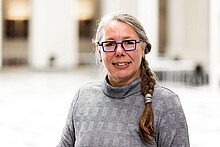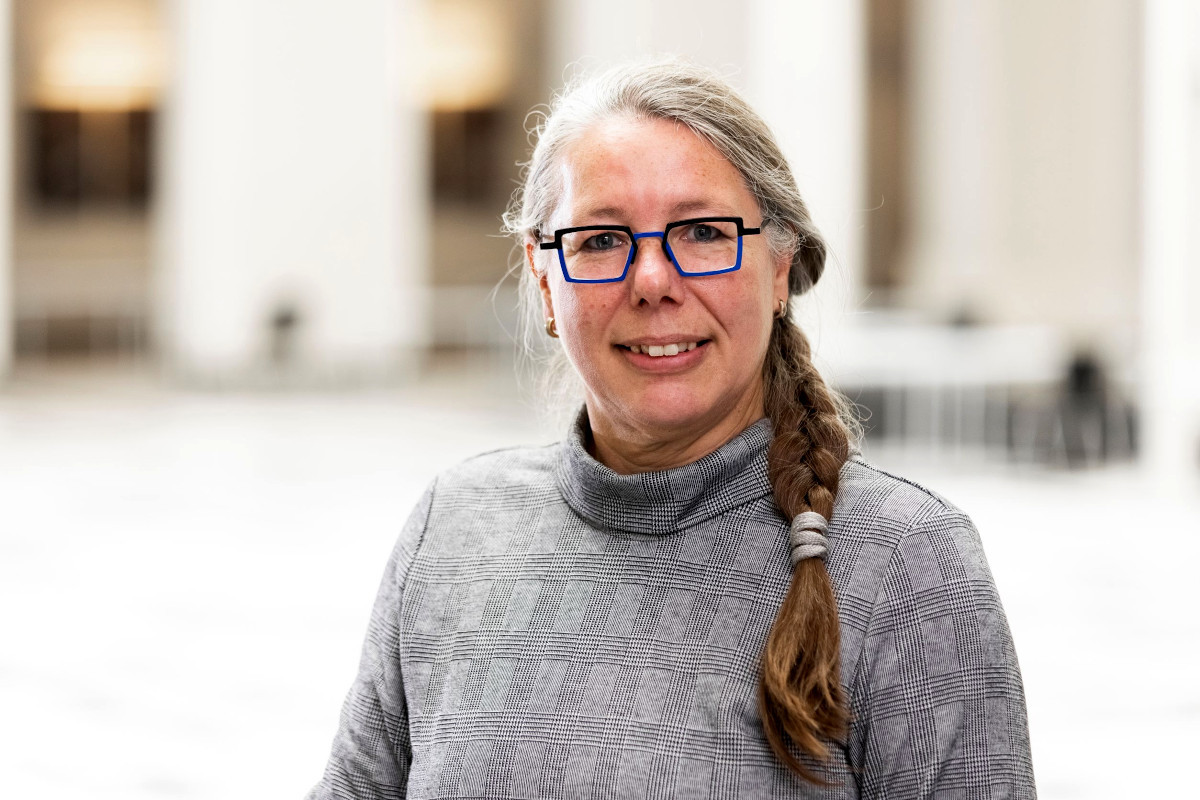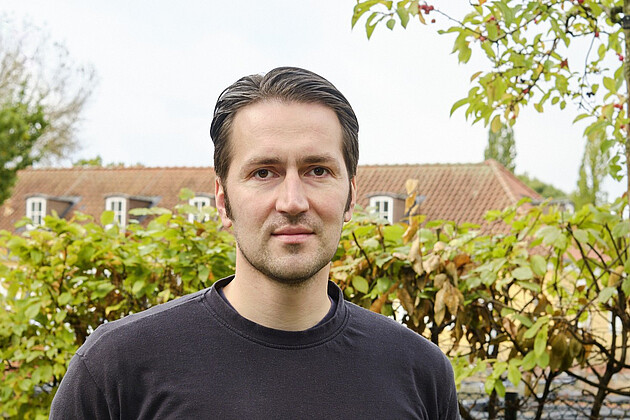Institutionalisation of diversity management
Guiding principles of the Leibniz University Hannover (LUH) on the diversity aspect
"The LUH regards the diversity of its students and employees as an exceptional potential. They promote a university culture based on diversity and equal opportunities, which is required for academic performance and innovative strength. Every member of the university should be able to develop and contribute their individual abilities regardless of gender, ethnicity, age, disability, sexual orientation, religion, or linguistic and social origin. The LUH aims to accept and respect this diversity and to counteract discrimination. Diversity management fosters this productive variety and is seen as a contribution to quality improvement, interdisciplinary thinking, integration, accessibility and educational justice."
Free development independent of the “Big Six“(gender, sexual orientation, ethnic origin, religion/belief, disability, and age) has been anchored in the EU Anti Discrimination Act and the General Equal Treatment Act (AGG).
For the Faculty of Natural Sciences this can be further specified as many working groups operate and are staffed internationally. Internationally acting research and teaching at the Faculty of Natural Sciences can only benefit from the variety of national and cultural origins, from different educational backgrounds, experiences and career paths, and from different ages and genders.
Deficits are still present regarding university access, as the following groups experience strong barriers in Germany, especially for subjects in the natural sciences: students with migrant background and non-German origin, with disabilities and those from non-academic families. The Faculty of Natural Sciences aims to increase its number of these students, thus realising diversity justice. This presents an opportunity for the Leibniz University Hannover to serve as a social integration entity
Researchers as role models
The Faculty of Natural Sciences and its members want to set a good example for students and doctoral students by including ethnic sensibilisation in their research topics next to the conveyance of factual knowledge in their teaching and instruction during theses. An emphasis is on developing sensitivity to the complexity of research and on awareness of its impact on society.
Support for teaching staff
New teaching requirements for diversity and inclusive teaching are also a challenge for teaching staff at the Faculty of Natural Sciences. For teaching, very helpful handouts and further training offers are available from the Equal Opportunities Office and the Human Resources Development Department to actively promote diversity of opportunity, protection against discrimination and diversity.
Goals of the faculty
An awareness of gender and diversity is important during staffing of all positions inside the University. The faculty aims to permanently establish a distribution of all genders inside the faculty and the different (pay) ranks in accordance with their distribution in the society in Germany and to reduce and remove barriers that still exist. Admission to the university as well as studying and working itself should be made possible independent of age, disability, sexual orientation, and origin (social and geographical). Beyond gender aspects, the overall aim is to promote a cultural change within the faculty – for a stronger appreciation of diversity and more inclusion.
Increasing the proportion of women in areas they are underrepresented in
The number of women has to be increased especially at the level of professorships and in leading positions. In this regard, the Faculty of Natural Sciences joins the goals set by the Leibniz University Hannover. Through staffing of vacant professorships, a minimum of 33% women in all professorial positions is to be reached by 2024. Regarding the gender ‘diverse’, its social distribution in Germany has to be monitored over the upcoming years before meaningful targets can be defined.
The Faculty of Natural Sciences published its goals and measures for the years 2020 to 2024 in its report on the update of the equal opportunities framework plan of Leibniz Universität Hannover, which is available for download as a pdf file:
Measures at the Faculty of Natural Sciences
-
Equal opportunities, career, and family
Important factors to promote young researchers are equal opportunities for women, man, and non-binary people. In addition, there is the need to reconciliate career and family. Equal opportunities are largely given in many research areas at the Faculty of Natural Sciences for both among students and doctoral students as is vividly demonstrated by the roughly balanced gender distribution in terms of women and men in graduations and doctorates (no figures are yet available for people with non-binary gender identity).
However, the proportion of women declines continually with increasing career levels of leading positions and professorships, although a consistently high proportion of female doctoral students has been observed for more than two decades. Often, the ability to reconcile family and career plays an increasingly important role only after graduation or doctoral programmes. The faculty management, together with all members of the faculty, aims for a gender equality on all career levels. Since positions after the doctorate are particularly affected, the respective staffing decisions are closely monitored and attended to by the decentralised equal opportunities officers.
Furthermore, cultural diversity (hereafter gender and diversity) is to be ensured at the faculty.
In order to achieve these goals, it is extremely important to create family-friendly working conditions that allow for the reconciliation of career and family - also with regard to the international attractiveness of the faculty. The focus here is on a reliable, flexible, attractive, and yet cost-effective childcare. The number of childcare places (day care places) for employees of the university has been increased to 18 during the last four years, and with it the possibility of reliable childcare close to campus. A further increase in capacity is being worked towards due to the high demand. The backup childcare for students and employees at Leibniz Kids has been expanded and enables flexible and attractive childcare, especially in the case of short-term demand, e.g., after the relocation of newly appointed professors and/or visiting academics. Newly established breastfeeding and quiet rooms, e.g., in the TIB, and more flexible working hours, as well as very flexible home office regulations during Corona times, support the family-friendly environment. In addition, the university's Equal Opportunities Office has expanded and intensified its counselling services for families and pregnant women, which benefits students and employees alike.
-
Family-friendly university
The Leibniz Universität Hannover was once again awarded the family-friendly university audit certificate in Frankfurt a. M. on May 31, 2021. Thanks to the continuous development of family justice, the certificate has been awarded to the Leibniz Universität since 2008.
-
Expansion of gender and diversity aspects
In conjunction with the ongoing internationalisation, with further education offers and teacher training, an expansion of aspects on gender and diversity in the faculty is planned in all areas. For the past three years, the faculty has been involved in joint welcoming events for (inter)national doctoral students under the auspices of the University Office for International Affairs. The visiting professorship for gender and diversity, established with funds from the LUH and the Faculty of Natural Sciences, has provided important impulses for diversity awareness among students. These are supplemented by offers from other lecturers: In the career exploration seminar, topics such as attribution, stereotypes, and role models are offered, which help students to realistically plan their own career steps. In addition, the faculty's own graduate school GRANAT regularly offers free courses for students, doctoral candidates, and postdocs, including coaching sessions on setting up and reflecting on one's own career development strategy. After a longer timeout, a Gender and Diversity Day was implemented again in the summer of the Corona year 2021, which is to be maintained as an annual offer with varying topics. These events are intended to offer reflection, dialogue, and exchange on various gender and diversity topics within the faculty and to promote a cultural change towards more appreciation of diversity and more inclusion.
-
Mentoring
Mentoring has emerged as a very effective tool for career development and planning at various levels. For example, Project U by the Equal Opportunities Office offers female students from the STEM fields the opportunity to gain clarity about their career goals. In addition, the LUH offers mentoring programs for career entry as well as individual coaching for doctoral students and young researchers. The coaching sessions, available in German and English, offer advice in difficult life situations, but are also intended for questions about work-life balance or academic personality development.
-
Support of female students
Already during their studies, outstanding female students should be encouraged to aspire to a leadership position. Female professors can help as role models by promoting a positive self-concept and highlighting opportunities. Additional incentives are provided by the above-mentioned mentoring and coaching programmes and other training opportunities of GRANAT.
Equal Opportunities Officers – Faculty of Natural Sciences
Department Equal Opportunities Officer


Deputy Department Equal Opportunities Officer







